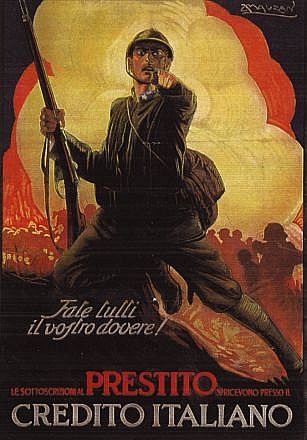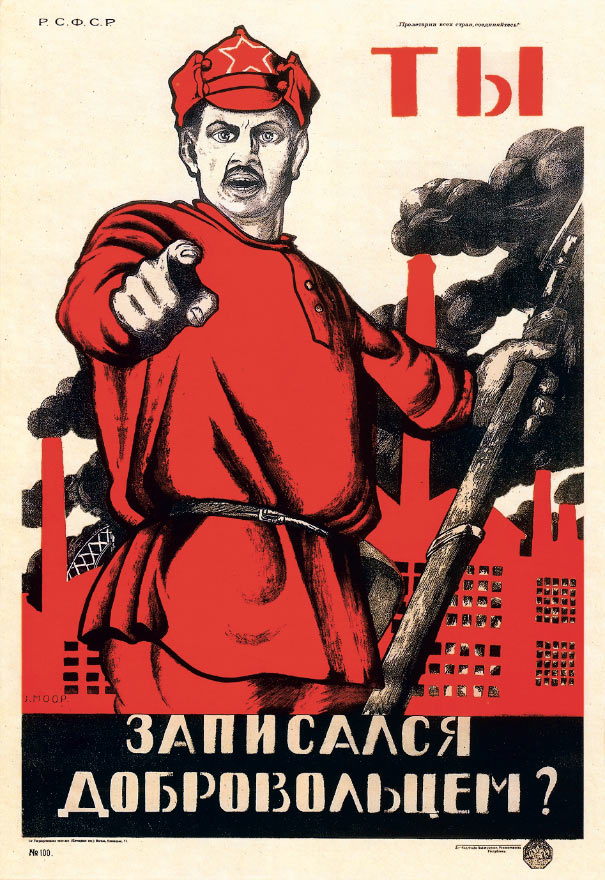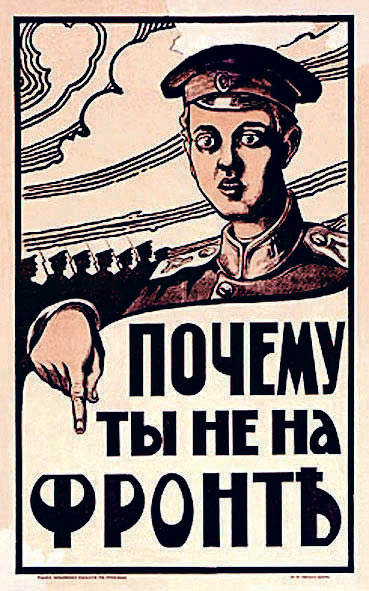

A nice article (pdf) by Lawrence W. Reed (html version here).

The best analogy to date is that of a doctor treating a cancer patient with half-measures (e.g., 75% of recommended radiation doze), never completing the job and having to come back to treat the tumor that returned, r”l. (All the while moaning and groaning about the damage the treatment does to so many living, “peaceful bystander” cells.)The Israeli writer David Grossman has an op-ed that appears in both today’s New York Times and Guardian. Grossman says that “the most important lesson we must learn” from the Lebanon war in 2006 is that every military offensive should be halted after a few days to allow a cease-fire, so that the enemy can pause to take the measure of Israel’s destructive capabilities, and — for Grossman, this is really the more important point — Israel can restrain itself “[a]gainst the deadly logic of military power and the dynamic of escalation.”
It is interesting that cycle-of-violence fetishists, who are absolutely certain that military action is part of the problem, do not recognize the problem of the cycle of cease-fires. There is an opportunity right now to deal a crippling blow to Hamas, and it will require ground combat, more air strikes, and the maintenance of the IDF’s violence of action. There is indeed a cycle between Israel and its enemies, but the problem is not the cycle of violence. The problem is that every time the IDF is poised to strike a decisive blow against the enemy, the David Grossmans of the world emerge to plead for restraint exactly at the moment when restraint is the last thing that should be considered.
This morning, Scott noted that the Israeli Defense Force had set up a YouTube channel to which it uploaded videos of the fighting in Gaza, but YouTube deleted some of the videos. With the assistance of Noah Pollak, we’ve obtained the videos and will be posting them this afternoon.Go to the link above to see the two videos. I just watched them — very-very cool stuff. You can see missiles being loaded on a truck in the first video until — bam! The second one has “some remarkable videos transmitted from the noses of rockets or missiles”.
A Jew came to Tzemach Tzedek and asked: “What should I do that I do not enjoy learning Torah?” The Rebbe answered: “And what should I do that I do enjoy learning Torah?”
An English lord is sitting in his office; he hears noise outside his windows, loud shots. He calls his butler and asks:OK, the joke (like most Russian jokes) is poorly translatable into English. But, why did I suddenly think of this joke? Well, I usually think about whores when I read about news media. This time, it was a little piece here by Istapundit.
— Barrymore, what is going on?
— London prostitutes are protesting; they say they need higher pay, sir.
— And are they really getting low pay?
— I wouldn’t say so, sir.
— So why are they protesting?
— Whores, sir.
American media opinionator Greg Mitchell at HuffPo, silent on missiles coming out of Gaza, decries American media opinion silence on missiles going back into Gaza.There is nothing new under the moon.

She hasn’t held office or paid her political dues but has been the guiding force behind the John F. Kennedy Presidential Library. […] She has all the qualities — intellectual curiosity; a friendly, at times pointed, sense of humor, and a deferential manner (she hails her own cabs) — that are the stuff of a good legislator.Wow. How dare those conservative bastards even say anything against such impressive résumé? Forget the NY senator — make her the Empress of Galaxy! Have you ever heard of a politician with a sense of humor (at times pointed) who hails her own cabs? I mean, it’s like asking whether Einstein is a good scientist. Duh…
















The lesson is one that becomes clearer with each excruciating turn of the Wall Street screw. The long, bipartisan experiment with financial deregulation has failed utterly. The argument that a return to rigorous oversight will somehow stifle Wall Street’s ‘creativity’ is no longer convincing. Whatever its theoretical costs, regulation is dramatically cheaper than intervention. And absolutist insistence on the superiority of ‘individual choice’ and ‘free markets’ now is exposed as so much vacant rhetoric. Any system that permits a scam artist like Madoff to deceive not just widows and orphans but also sophisticated investors, like Fairfield Greenwich Group’s Walter Noel and Hollywood’s Jeffrey Katzenberg, isn’t a market at all; it’s a shooting gallery.Richman answers:
The last sentence is a tip-off that something is wrong with this outlook. Financial regulation is usually proposed to protect the unsophisticated. People knowledgeable about finance and securities presumably can take care of themselves. But what makes the Madoff scandal so noteworthy is that the most sophisticated types were taken in, even though several experts sounded alarms. Why?_______________
The other thing to note about Rutten’s position is that there has been no relevant financial deregulation to speak of. In fact, since Enron’s collapse, regulation has intensified and the regulatory budget has grown. The SEC already requires investment and hedge-fund managers with assets over $100 million to file quarterly reports. Under prodding from outside, the SEC looked at Madoff’s operation more than once but found no major problems. Moreover, Madoff’s alleged crimes involve fraud. Have any laws against fraud been repealed?
Contrary to Rutten, whose prejudice against “individual choice” and “free markets” is palpable, these two facts — sophisticated victims and pervasive regulation — demonstrate the failure not of the free market (which did not exist) but rather of regulation.
How can that be?
Begin the obvious: a false sense of security is worse than none at all. When people believe government is protecting them from bad financial services, they are more vulnerable to scams than if they knew they had to protect themselves. The government’s huge regulatory apparatus broadcasts one unmistakable subliminal message: Have no fear because Big Brother is watching over you. Is it any wonder that people are less wary than they would be if they did not believe that?
As long as government plays a regulatory role — or people believe it does — they will assume that key activities are being monitored. And even when an activity is known to be unregulated, the implication is that if regulation were needed, government would be doing it. Why else did worldly investors fall for Madoff’s self-described “giant Ponzi scheme”?
The call for regulation assumes — without grounds — that government can protect investors from con men. But government regulators have never been able to make good on that promise. Con men prosper no matter how much the government regulates. They often understand the system better than the people running it. (Madoff was an insider!)
Looking to government regulation for security merely adds another avenue for corruption. Ordinarily people are cautious when someone promoting a product stands to profit by its sale. But regulators are supposedly disinterested and don’t profit by their activities. All they want to do is protect the public interest — and they have the state’s imprimatur vouching for them. That’s the theory at any rate.
In fact, they are human beings like us all, with the same kinds of motives and goals — and temptations. To the extent we think they are saints, we make ourselves vulnerable to scams. (Speaking of Ponzi schemes, check out Social Security and Medicare¹.)
What’s the solution? Super-regulators to watch the regulators? And who watches the super-regulators? Face it: there is no security in regulation. Rather, there’s only a dangerous illusion of security, not to mention a drag on economic growth as the bureaucracy interferes with honest traders.
The claim of free-market advocates is not that we need no protection from the unscrupulous. Rather, it’s that protection is maximized by undiluted market discipline — profit and loss — and buyer-beware skepticism.
Pushkin
17 30 48
140 10 01
126 138
140 3 501
Mayakovsky
2 46 38 1
116 14 20!
15 14 21
14 0 17 .
Yesenin
14 126 14
132 17 43...
16 42 511
704 83
170! 16 39
514 700 142
612 349
17 114 02
Omar Khayyám
147 14 05
512 8 45
7 48 20 90
0 29 30 25
Happy:
2 15 42
42 15
37 08 5
20 20 20!
7 14 100 0
2 00 13
37 08 5
20 20 20!
Sad:
511 16
5 20 337
712 19
2,000,047
At Reason’s 40th anniversary event, held in Hollywood on November 14 and 15, the American Enterprise Institute’s Peter Wallison analyzed the roots of the current market meltdown and explained how government policies directly caused or massively exacerbated the housing bubble and the subsequent bust at the center of things.Watch the bigger version here.
The Arthur F. Burns Fellow in financial studies and codirector of AEI’s program on financial markets deregulation, Wallison is the author of several books including most recently, Competitive Equity: A better way to manage mutual funds.
Approximately 25 minutes.

It’s unclear to me what “deeper understanding” of a group that trained, armed and equipped the Mumbai terrorists to engage in both targeted and indiscriminate slaughter of innocent people would be required to conclude that they are, indeed, terrorists themselves.
Then, of course, there is the difficult case of Hamas, which celebrated its 21st anniversary today. In some circles, the fact that an organization boasts of its terrorist exploits would be enough to justify calling it a “terrorist” organization. But the Times’ approach is considerably more subtle:
To the consternation of many, The Times does not call Hamas a terrorist organization, though it sponsors acts of terror against Israel. Hamas was elected to govern Gaza. It provides social services and operates charities, hospitals and clinics. Corbett said: “You get to the question: Somebody works in a Hamas clinic — is that person a terrorist? We don’t want to go there.” I think that is right.
Yeah, that's a tough one all right. It's a lot like when the Nazis were elected to govern Germany, and they provided all kinds of social services and sponsored cultural events and sports festivals. That created a situation that was just too ambiguous for our newspapers to deal with.

In many regions of the vertebrate brain, neural networks consist of two broad classes of neurons: excitatory principal neurons and inhibitory interneurons. Although excitatory neurons often constitute the vast majority of the neurons that make up neural circuits, by themselves they would only generate an avalanche of excitation, and they would not be able to perform useful computations. It is often the inhibitory interneurons that provide the functional balance, complexity and computational architecture of neural circuits.In other words, it is very well for excitatory cells to be the “representatives” of a specific cortical area and be responsible for sending information to other areas and even sub-cortical structures (all the way to periphery — e.g., to muscles), but it is the interneurons who determine what sort of information will be sent out.
Interneurons that use GABA (γ-aminobutyric acid) as their transmitter have far more functions than just the “inhibition” of other neurons. For example, GABA transmission regulates synaptic integration, probability and timing of action potential generation, and plasticity in principal neurons.
Furthermore, interneurons generate and maintain network oscillations, which provide the temporal structures that orchestrate the activities of neural ensembles. The functional output of principal cells — the neural code embedded in their firing patterns — is largely determined by the temporal and spatial dynamics of inhibition in the network.
Richter was admired by many, including the late Glenn Gould, as “one of the most powerful musical communicators of our time”, and rightly so. Here, from the film “Richter: The Enigma”, he plays Chopin’s Etude No. 4, Op. 10 — a piece he became known for after he set a record for the fastest performance of it, in London, at a time of 1:32. [In this clip he's a tad on the slower side, clocking in at about 1:35… ;)] Some criticize him for the speed at which he often plays, feeling it detracts from the lyricism of the music. But to all but the least discriminating ear, Richter possesses both amazing technical and artistic abilities; even here, at this speed, his tone is clear, the integrity of the phrasing is preserved, and his passion is palpable.Chopin was probably rolling in his grave. “To play my music as if I was some… Beethoven!”


![[chagall_040_modlici_se_job.jpg]](https://blogger.googleusercontent.com/img/b/R29vZ2xl/AVvXsEiA40IxGQe8JMal5rdBIlFLLm_Sak7eCSBsdSyefMFujh3pWlnp14W4tvWYDkhlH17boyvRBsJnm5ijY9cxbTsGTDEyye8uqTwqlF2BB0mAjSxtKRifmQd90llMlpzPbSdXZaHv63SZCv0/s1600/chagall_040_modlici_se_job.jpg)









The Mumbai massacre could happen in London tomorrow; but probably it could not have happened to Londoners 100 years ago.Finally, every man obviously wore a hat.In January 1909 two such anarchists, lately come from an attempt to blow up the president of France, tried to commit a robbery in north London, armed with automatic pistols. Edwardian Londoners, however, shot back – and the anarchists were pursued through the streets by a spontaneous hue-and-cry. The police, who could not find the key to their own gun cupboard, borrowed at least four pistols from passers-by, while other citizens armed with revolvers and shotguns preferred to use their weapons themselves to bring the assailants down.
Today we are probably more shocked at the idea of so many ordinary Londoners carrying guns in the street than we are at the idea of an armed robbery. But the world of Conan Doyle’s Dr Watson, pocketing his revolver before he walked the London streets, was real. The arming of the populace guaranteed rather than disturbed the peace.
That armed England existed within living memory; but it is now so alien to our expectations that it has become a foreign country. Our image of an armed society is conditioned instead by America: or by what we imagine we know about America. It is a skewed image, because (despite the Second Amendment) until recently in much of the US it has been illegal to bear arms outside the home or workplace; and therefore only people willing to defy the law have carried weapons.
In the past two decades the enactment of “right to carry” legislation in the majority of states, and the issue of permits for the carrying of concealed firearms to citizens of good repute, has brought a radical change. Opponents of the right to bear arms predicted that right to carry would cause blood to flow in the streets, but the reverse has been true: violent crime in America has plummeted.
There are exceptions: Virginia Tech, the site of the 2007 massacre of 32 people, was one local “gun-free zone” that forbade the bearing of arms even to those with a licence to carry.
In Britain we are not yet ready to recall the final liberty of the subject listed by William Blackstone in his Commentaries on the Laws of England as underpinning all others: “The right of having and using arms for self-preservation and defence.” We would still not be ready to do so were the Mumbai massacre to happen in London tomorrow.
“Among the many misdeeds of British rule in India,” Mahatma Gandhi said, “history will look upon the act depriving a whole nation of arms as the blackest.” The Mumbai massacre is a bitter postscript to Gandhi’s comment. D’Souza now laments his own helplessness in the face of the killers: “I only wish I had had a gun rather than a camera.”

Wal-Mart produced desirable outcomes in the Katrina event because it had both the right knowledge and the right incentives in place, compared with those of government agencies [the U.S. Coast Guard is not included], declares economist Steven Horwitz. “Whether organizations are able to acquire such knowledge and have the appropriate incentives depends on the institutional environments in which they operate and the way in which the organizations are structured,” he continues.Who could have thought that evil WalMart that cares only about its pockets, kicks small cute businesses out of local area, trades with China and hates labor unions would be more effective in helping poor people than the government? Hmm… Maybe somebody with the right idea of what the government’s role is supposed to be?..
“In general, the environment of market competition is superior to that of the political process in providing both the knowledge necessary to respond to people’s needs and the profit incentive to act on that knowledge in ways that create value. Within the political process, agencies face different incentives, as they do not operate by profit and loss. Instead, government agencies are more often concerned with pleasing other political actors and finding ways to expand their budgets and power. This often makes them less sensitive to the direct needs of the people who rely on them to get specific tasks accomplished.” On the market’s superiority at providing both the knowledge and incentives for efficient resource use and greater value creation, Horwitz directs interested readers to the essays in F. A. Hayek, Individualism and Economic Order, Chicago: University of Chicago Press, 1948.
“In addition, the absence of a competitive market for their product means that, in general, government agencies face knowledge problems in determining what their output should be and how best to produce it. However, government agencies with a more decentralized structure that puts them in more direct contact with the people they serve may be able to overcome these knowledge problems. Larger, more centralized government agencies will lack the incentives of firms in competitive markets as well as the knowledge provided by true market prices, but more decentralized ones may do better along the latter dimension. [...]”

News of a rapidly weakening job market sent stocks sliding Friday as investors feared that the recession will be deeper and more prolonged than many have expected. The Dow Jones industrial average fell about 100 points.Instead of realizing that it was precisely its “steps” that caused market depression (now necessary to get out of the false bubble created by the government), which in turn resulted in increased unemployment, the government will take “further” steps, which will make things even worse, prompt people to say “well, we need to take even more steps; wow, it’s really much worse than we expected” — and the positive feedback cycle of stupidity will repeat itself. One stupidity leads to a tragedy which leads to another stupidity, and so on.The Labor Department's report that employers slashed 533,000 jobs in November was far worse than the 320,000 that economists forecast. The job losses were severe enough to add to expectations that the government will have to take even bigger steps to boost the economy.


Adherents of the jihadi ideology share a common presumption that the modern world in all its manifestations is the implacable enemy of a traditional religiosity. Modernism, in their minds, is built on concepts that pollute: reason, individual liberty, democracy, pluralism. Like all totalitarians, they demand submission to a single pure idea. Difference equals contamination; reason leads to sacrilege.One thing I should add is that Chabad does not merely tolerate the modern, “outside” world in public, while going back to traditional Jewish values in private. Uniquely in Judaism, Chabad philosophy actually asserts that immersion in physical world is necessary for successful spiritual progress; when accessed through proper means and from a proper angle, physical and modern allow us to reach the levels of spiritual before unreachable (indeed, this is why a Jewish soul descends into the physical world from lofty Higher Worlds in the first place).
If ever there were a living retort to the obscenity of these presumptions, it is the current of Hasidic Judaism that began more than 200 years ago in the Byelorussian village of Lyady. There, a philosopher rabbi — Shneur Zalman — sought a reconciliation of intellect and heart as a compromise to the controversy then dividing the Jewish world between those who held to a tradition of scholarship and disciples of the embryonic Hasidic movement, which stressed an emotive religious practice. He succeeded brilliantly and founded a movement that today commands the loyalties of hundreds of thousands of Orthodox Jews around the world.
The hallmark of Chabad's approach is an openness to — indeed, an embrace of — the modern world, while insisting that it make a place for their deeply traditional religious devotion. Around the world, including in Los Angeles, Lubavitcher Hasidim are living precisely the sort of lives the jihadi ideology insists are impossible. Culturally, they participate fully in the pluralist democracies, while privately, they profess fully a deeply traditional spirituality. Faithful to their own long history, they are valued and good neighbors to others.
[Rabbi Shneur] Zalman taught his followers that their G-d desires the development of their minds as well as their hearts. The fully realized human intellect, he argued, was built on da'at (knowledge), bina (understanding) and chochma (wisdom).
It's hard to imagine a more stinging defeat for the Mumbai killers than the fact that a movement of faith founded on such an idea has endured in fidelity to its traditions for more than two centuries, and will continue to thrive when, as the old Yiddish expression goes, the names and memories of the murderers have been erased.